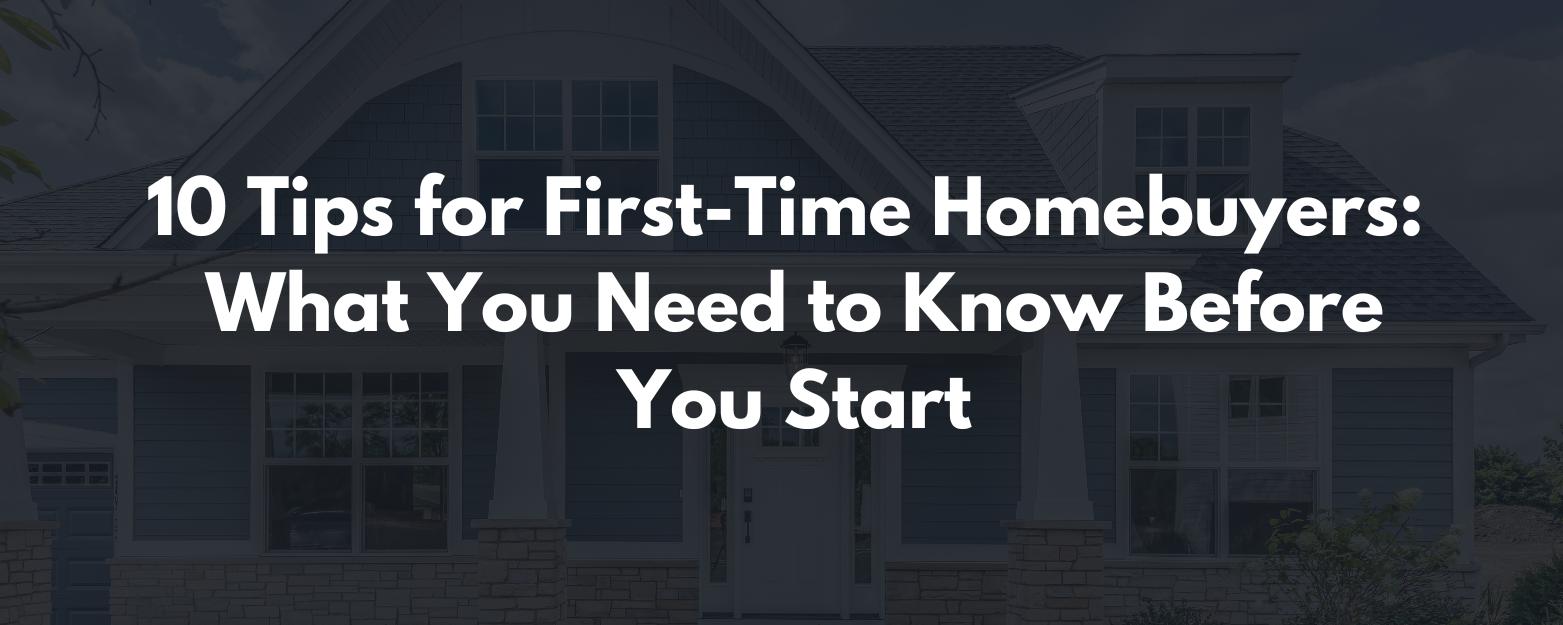
10 Tips for First-Time Homebuyers: What You Need to Know Before You Start
Buying your first home is an exciting milestone, but it can also feel overwhelming if you don’t know where to start. With so many decisions to make and factors to consider, preparation is key. Whether you’re dreaming of a cozy starter home or envisioning your forever space, these 10 tips will help guide you through the process with confidence.
1. Determine Your Budget
Before you start house hunting, take a close look at your finances. Calculate how much you can afford to spend on a home, including the down payment, monthly mortgage payments, property taxes, and maintenance costs. Use a mortgage calculator to get an estimate of what fits your budget.
2. Check Your Credit Score
Your credit score plays a significant role in determining your mortgage interest rate. Review your credit report and address any errors or outstanding debts. A higher credit score can save you thousands of dollars over the life of your loan.
3. Save for a Down Payment
While some loans require as little as 3% down, putting down 20% can help you avoid private mortgage insurance (PMI) and reduce your monthly payments. Start saving early and explore down payment assistance programs if needed.
4. Get Pre-Approved for a Mortgage
A mortgage pre-approval shows sellers that you’re a serious buyer and gives you a clear idea of how much you can borrow. Shop around for the best rates and terms, and make sure to provide all the necessary documentation.
5. Define Your Priorities
Make a list of your must-haves and nice-to-haves. Think about factors like location, size, layout, and amenities. Knowing your priorities will help you focus on homes that truly meet your needs.
6. Research Neighborhoods
The right neighborhood is just as important as the right house. Consider proximity to work, schools, public transportation, and amenities. Visit neighborhoods at different times of the day to get a feel for the community.
7. Work with a Real Estate Agent
A knowledgeable real estate agent can be an invaluable resource. They’ll help you navigate the market, negotiate offers, and handle the paperwork. Look for someone who understands your needs and has experience in your desired area.
8. Be Prepared for Additional Costs
Remember that the purchase price isn’t the only expense. Factor in closing costs, home inspections, appraisal fees, and moving expenses. Setting aside a contingency fund will help you handle unexpected costs with ease.
9. Don’t Skip the Home Inspection
A home inspection can uncover potential issues that might not be visible during a walkthrough. Hiring a trusted inspector can save you from costly surprises and give you peace of mind about your investment.
10. Stay Patient and Flexible
Finding the perfect home takes time. Be prepared to make compromises and don’t rush into a decision. Remember, this is a major purchase, and it’s worth waiting for the right fit.
Buying your first home is an adventure filled with opportunities to learn and grow. By following these tips, you’ll be better equipped to navigate the process and make informed decisions. With careful planning and the right support, you’ll soon be unlocking the door to your dream home. Happy house hunting!













